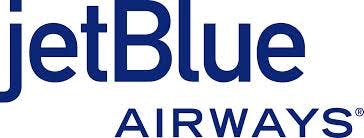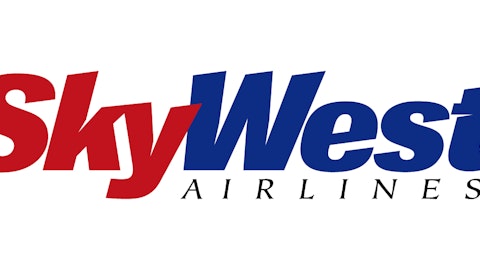The Department of Justice’s challenge to the proposed merger between US Airways and American Airlines parent company AMR surprised many analysts, including me. With the chances of the merger’s completion now up in the air, it’s time to look at how a failure to complete this merger might affect smaller industry players.
Potential slot gains
An independent reorganized American Airlines may decide to shrink operations, perhaps by selling off assets. While major carriers United, Delta, and US Airways would be bidders under this scenario, it would also give smaller carriers the opportunity to acquire new airport slots.
One airline that might gain an opportunity here is JetBlue Airways Corporation (NASDAQ:JBLU). It would like to expand its network in the Northeast, but the slots given to various carries have made that expansion difficult. If a restructured American were to divest airport slots in this region, JetBlue Airways Corporation (NASDAQ:JBLU) could gain further access to cities such as New York and Washington, D.C.
While JetBlue Airways Corporation (NASDAQ:JBLU) focuses on the East Coast, Alaska Air Group, Inc. (NYSE:ALK), parent company of Alaska Air Group, Inc. (NYSE:ALK) Airlines, could benefit from acquiring new slots along the West Coast. If American Airlines has to shrink its Los Angeles operations, Alaska Air Group, Inc. (NYSE:ALK) Airlines may be able to pick up slots at a highly popular airport. This, in turn, would boost the strength of Alaska’s network, giving it a greater presence in the West Coast market.
Large competitor factor
One of the difficulties faced by smaller carriers is a lack of economic scale and pricing power compared with the largest industry players. But a collapse of the US Airways/AMR merger would prevent the New American Airlines from taking even greater control over routes and fares. Now, this poses an interesting question: Would a large airline oligopoly help or hurt smaller carriers?
Initially, it seems pretty clear that such an industry setup would allow large carriers to squeeze smaller ones out through predatory means. But if the largest carriers stick to their own routes, and fares rise as a result, then smaller carriers would have more room to raise fares on alternative routes.
If the merger fails, airline fares are unlikely to rise quite as quickly. This would in turn require smaller carriers to keep fares down, even on alternative routes, to remain competitive with travelers. But the threat of predatory tactics by majors would be reduced as well. So it’s unclear whether higher fares would be balanced out by predatory tactics for smaller airlines. And until a merger does happen, no one will know for sure.
Industry surprise
Despite causing an initial drop in shares of smaller carriers, the DOJ lawsuit filing against the US Airways-AMR merger has some silver linings for non-legacy players. However, the exact effects will be largely a product of the actions taken by major carriers. Investors in small airlines should keep an eye on industry airfare trends as continuing upward movement gives smaller carriers more room to raise their own fares.
In the event the merger is allowed to proceed, investors in smaller airlines need to watch out for predatory pricing tactics. While technically illegal, regulatory action is rarely quick enough to mitigate all damage to smaller competitors. So, unlike the market’s virtually universal negative reaction, the skies ahead for smaller carriers may have even more opportunities than before.
The article Will a Scuttled Airline Merger Hurt Smaller Carriers? originally appeared on Fool.com is written by Alexander MacLennan.
Alexander MacLennan is long $17 January 2015 US Airways calls, and long $22, $25, and $30 January 2015 Delta calls. This article is not an endorsement to buy or sell any security and does not constitute professional investment advice. Always do your own due diligence before buying or selling any security. The Motley Fool has no position in any of the stocks mentioned.
Copyright © 1995 – 2013 The Motley Fool, LLC. All rights reserved. The Motley Fool has a disclosure policy.






